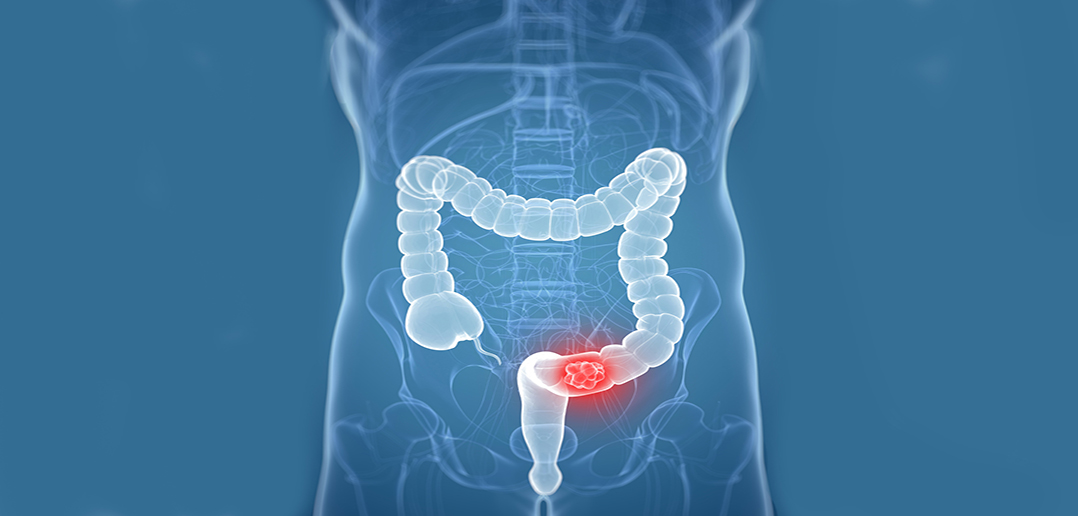

: Admin : 2020-04-30
Colon cancer is also known as bowel cancer, Colorectal cancer, or rectal cancer. It affects the colon and rectum. Colorectal can also be fatal cancer that can spread to other parts of the body and damage them.
Colorectal cancer is a colon and/or rectal cancer that begins with the development of polyps (disorders preceding cancer) in the lining of the colon and rectum. It can also be called colon cancer or rectal cancer, depending on where cancer starts. Colon cancer and rectal cancer are often put together because they have many characteristics in common.
What Are The Colon and Rectum?
The colon and rectum are parts of the large intestine, which is the lowest part of the digestive system. The colon is about 5 feet long and soaks up water from feces.
The rectum is the last 12 cm (about 5 inches) portion of the colon where the body holds the stool temporarily until the body abandons the mallow.
The symptoms of colon or colorectal cancer can be the following:
Changes in bowel habit
Constipation
Feeling that the bowel has not emptied properly after a bowel movement
Blood in the stool, causing stool to appear black
Bright red blood from the rectum
Pain in stomach and swelling
Feeling of heaviness in the stomach even after not taking food for a long time
Fatigue
Sudden Weight Loss
Lump in stomach or anus
Iron deficiency in men or women after menopause
Most of these symptoms can also indicate other diseases. If symptoms persist for 4 weeks or more, a doctor should be consulted.
There are many causes of Colone cancer, some of them are the following:
Effect of older age
Consumption of foods with excess protein, saturated fat, and calories
Lack of fiber in the diet
Extremely addictive alcohol
Breast, ovary or uterine cancer
History of colorectal cancer in the family
Overweight and obesity
Smoking
Lack of physical activity
The presence of polyps in the rectum, which can become cancerous.
Excess intake of red or processed meat
Stages of Colorectal Cancer
There are several stages of the colon or colorectal cancer which are as follows:
Stage 0: This is the earliest stage when cancer still occurs in the inner lining of the mucosa or rectum. It is also called carcinoma in situ.
Stage 1: Cancer has developed and has gone beyond the inner layer of the colon or rectum, but has not yet spread beyond the rectum or colon wall.
Stage 2: Cancer has penetrated through the wall of the colon or rectum, but it has not yet reached the nearby lymph nodes.
Stage 3: Cancer has entered nearby lymph nodes, but has not been able to affect other parts of the body.
Stage 4: Cancer has also spread to other parts of the body, such as the liver, abdominal cavity, lungs, or membranes in the ovaries.
Recurrent: Cancer has returned after treatment. It may affect the rectum, colon, or any other part of the body by returning.
Diagnosis of Colorectal Cancer
After the symptoms of colon cancer are detected, your doctor may advise you to have the following tests for diagnosis of colon or colorectal cancer:
Blood stool test
Stool DNA test
Flexible sigmoidoscopy
X-ray
Colonoscopy
CT colonography
Imaging scans
Treatment of the patient depends on several conditions. For example:
the size and location of the cancerous part
the stage of cancer and
the present physical condition of the patient is assessed.
There are several methods available for treatment. These include:
surgery
chemotherapy
radiotherapy
targeted therapy
Surgery is the primary method for the treatment of colorectal cancer. After surgery, chemotherapy or radiation therapy is used. The extent of surgery and the need for surgery depends on the condition of the disease and also depends on whether the cancer of the afflicted person is of the colon or of the rectum. In certain conditions of rectal (rectum or rectal) cancer, chemotherapy and radiation therapy are given to the afflicted person after the rectum has been removed. Further treatment depends on the condition of cancer during the operation.
So above are the details related to Colon or Colorectal cancer. If you want to know more about this or get detailed information about Doctors, Surgeons, Specialists, Hospitals, Clinics, Labs, and Best Health Care Packages, then feel free to seek help from Medco. All this information is available on Meddco's website meddco.com and Meddco App
colon cancer chemotherapy meddco affordable Health Care Packages cancer cancer treatment colon cancer treatment Diagnosis of Colorectal Cancer Stages of Colorectal Cancer Symptoms of Colorectal Cancer find a doctor book doctor appointment doctor near me colon cancer specialist hospital near me
No Comments